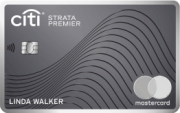The content is accurate at the time of publication and is subject to change.
Every cardholder's fear is to be a victim of identity theft. If thieves get a hold of personal information, it will not be long that they will be able to access personal accounts as well. With the verification information in their possession, they can easily access accounts and change passwords and pin codes. This includes credit card information. They can make purchases with your credit card leaving you with a very large debt to pay.
What is identity theft?
In terms of the security and protection of consumers, identity theft is when a person or group of persons who gets a hold of your personal information and uses this to steal or make unauthorized transactions that will be in favor of them. They will access your accounts and get money from it in a well planned manner to reduce suspicion. They also have the ability to make unauthorized credit card transactions leaving you with a large debt to pay.
In severe cases, they can take over your identity and pretend that they are you. They will be able to open additional credit accounts and even apply for loans.
What is Fraud?
Fraud is not solely lying just to get something. It involves deceiving other people for personal benefit. A very good example would be deceiving other people that you are the owner of the credit card number that you just provided to make a purchase. It goes hand in hand with identity theft since they need to have your personal information for them to be able to do fraudulent activities.
Do we have a law protecting cardholders from fraud?
Yes, in fact we do. It is called the Fair Credit Billing Act. Under it is Truth in Lending Act that will enable you to postpone payment for a charge on your credit card that is unfamiliar. It gives you time to make a dispute to your credit card company and also alert other related institutions. This is recognized by the companies so whenever a fraudulent transaction is presented, they will give the appropriate attention to the investigation and not insist on collecting from the borrower.
How can they access personal information in the first place?
There are a lot of ways in which people can get information. They have become resourceful in their theft. Robbers can get information over online accounts, credit card receipts found in the garbage can, and even transactions made over the phone. So you have to be careful with your things and also make sure that who you make transactions with are reliable.






